Today, Wednesday 26th September, marks European Day of Languages 2018, a day that promotes the rich linguistic and cultural diversity of languages in Europe, as well as encouraging lifelong language learning in and out of school. According to the official website, there are 800 million Europeans represented in the Council of Europe’s 47 member states – that’s a lot of people speaking a range of different languages, many of whom are bilingual, trilingual or even multilingual!
To celebrate this year’s European Day of Languages, we’ve chosen some of our favourite words from the languages of Europe that are either culturally unique or untranslatable – or both!
Besa, Albanian (vb)
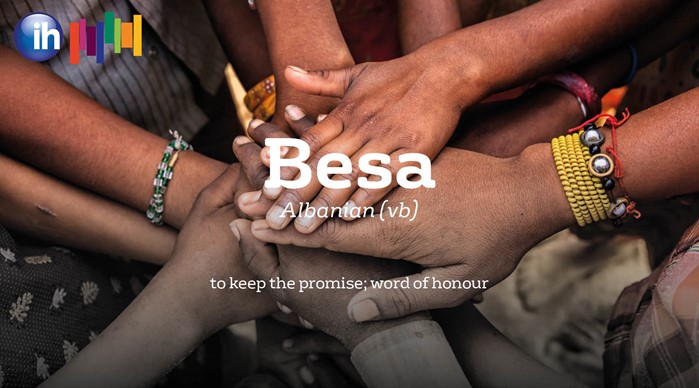
Meaning: to keep the promise; word of honour
Aspaldiko, Basque (n)
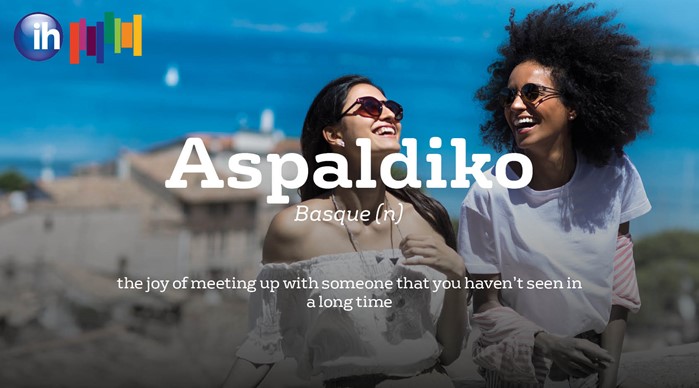
Meaning: the joy of meeting up with someone that you haven’t seen in a long time
Ailyak, Bulgarian (n)
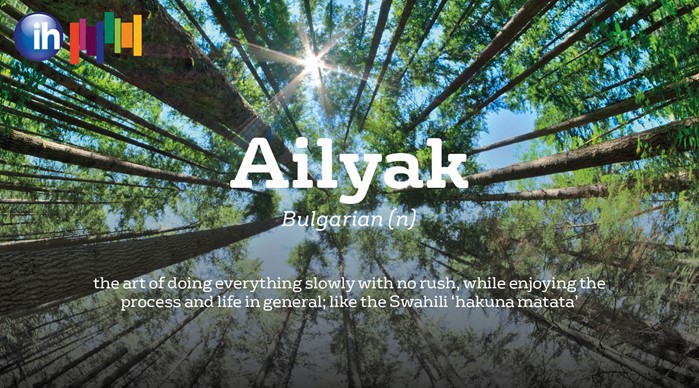
Meaning: the art of doing everything slowly with no rush, while enjoying the process and life in general; like the Swahili ‘hakuna matata’
Mít kliku, Czech (vb)

Meaning: to have luck, or literally ‘to have a door handle’; often used in situations when you get lucky enough to achieve a good result
Arbejdsglæde, Danish (n)
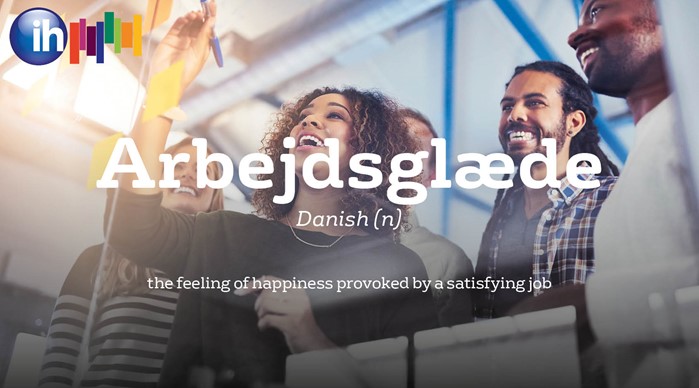
Meaning: the feeling of happiness provoked by a satisfying job
Voorpret, Dutch (n)
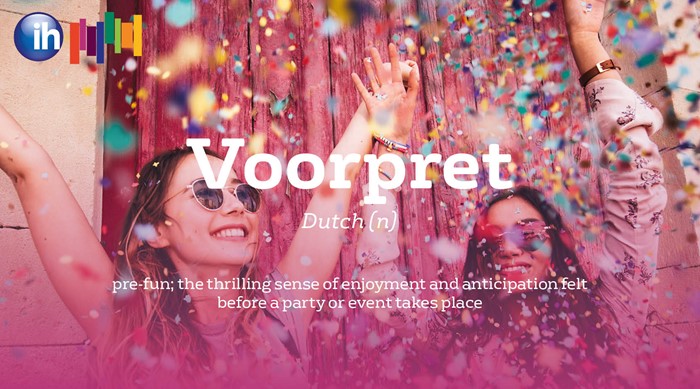
Meaning: pre-fun; the thrilling sense of enjoyment and anticipation felt before a party or event takes place
Petrichor, English (n)
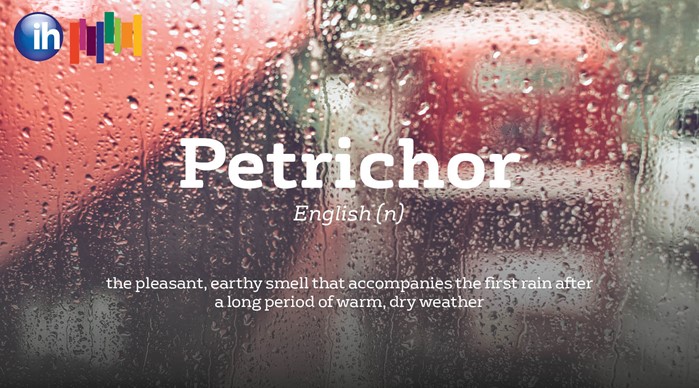
Meaning: the pleasant, earthy smell that accompanies the first rain after a long period of warm, dry weather
Leiliviskaja, Estonian (n)
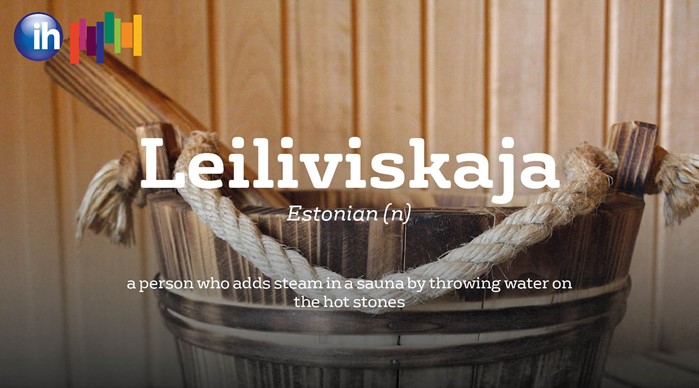
Meaning: a person who adds steam in a sauna by throwing water on the hot stones
Kaamos, Finnish (n)
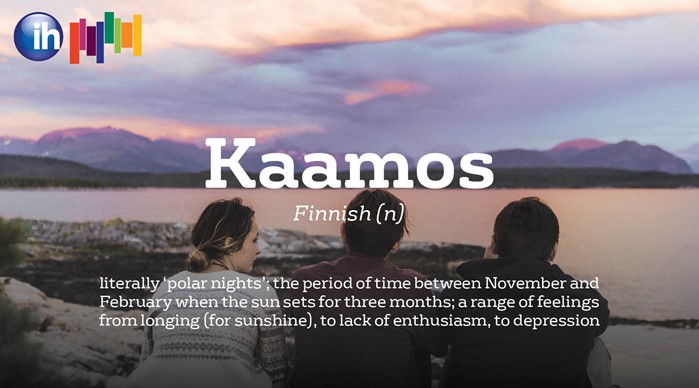
Meaning: literally ‘polar nights’; the period of time between November and February when the sun sets for three months; a range of feelings from longing (for sunshine), to lack of enthusiasm, to depression
Flâneur, French (n)
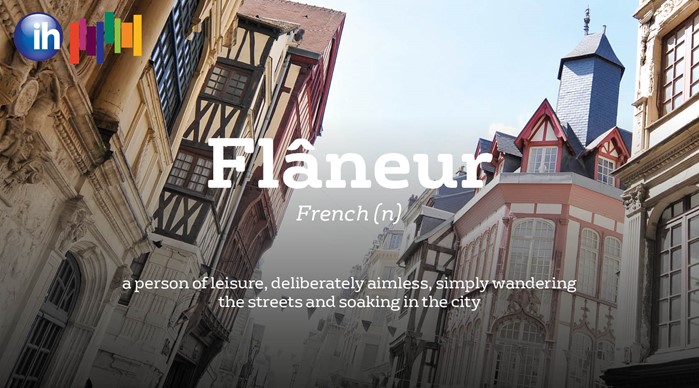
Meaning: a person of leisure, deliberately aimless, simply wandering the streets and soaking in the city
Shemomedjam, Georgian (n)

Meaning: the act of eating something or finishing a meal simply because it is delicious, not because one is hungry
Fingerspitzengefühl, German (n)
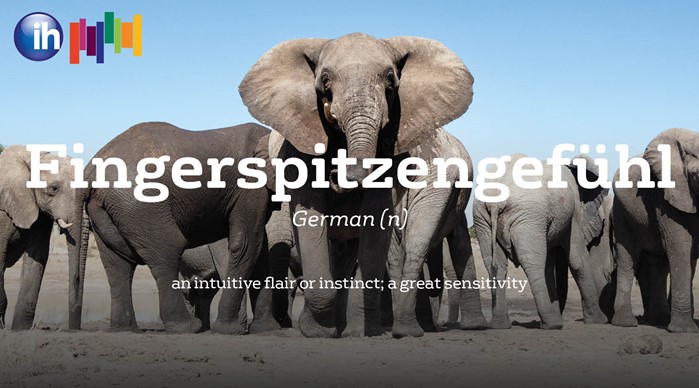
Meaning: an intuitive flair or instinct; a great sensitivity
Meraki, Greek (vb)

Meaning: to do something with soul, creativity, or love; when you leave a piece of yourself in your work
Elmosolyodni, Hungarian (n)
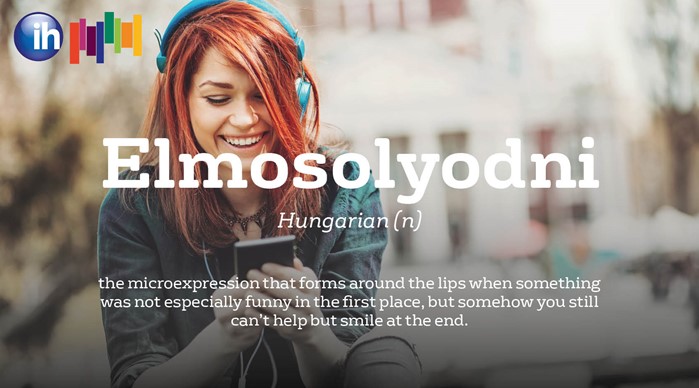
Meaning: the microexpression that forms around the lips when something was not especially funny in the first place, but somehow you still can’t help but smile at the end.
Meriggiare, Italian (vb)
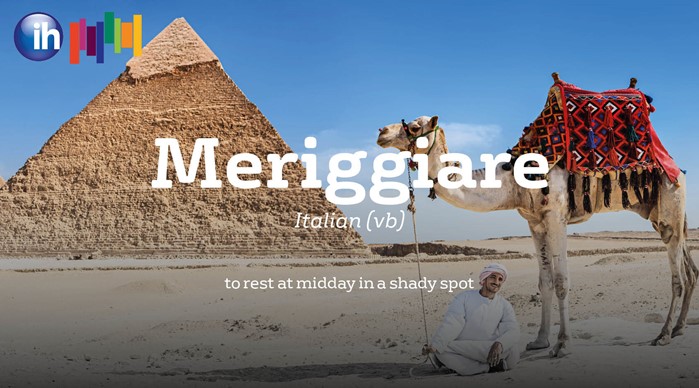
Meaning: to rest at midday in a shady spot
Kaapshljmurslis, Latvian (vb)
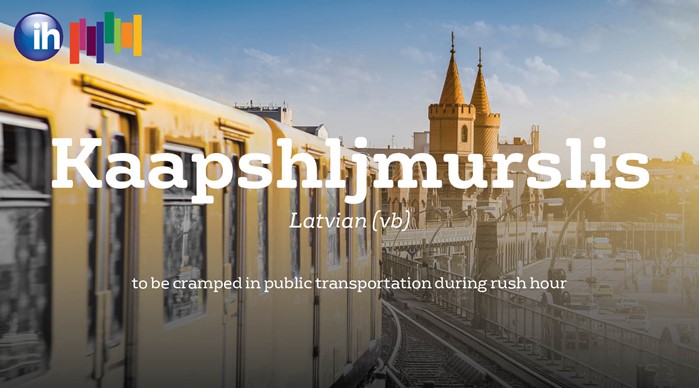
Meaning: to be cramped in public transportation during rush hour
Nepakartojama, Lithuanian (adj)
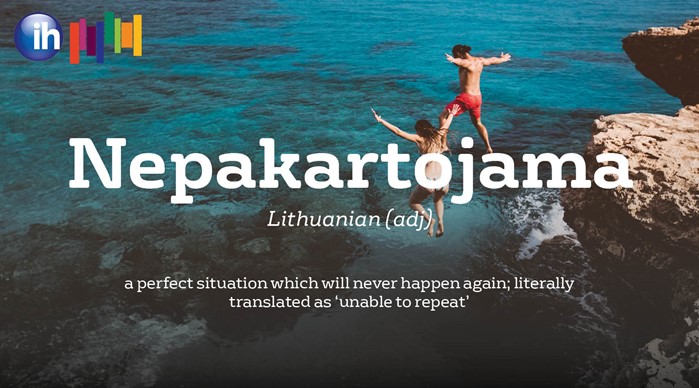
Meaning: a perfect situation which will never happen again; literally translated as ‘unable to repeat’
Forelsket, Norwegian (n)
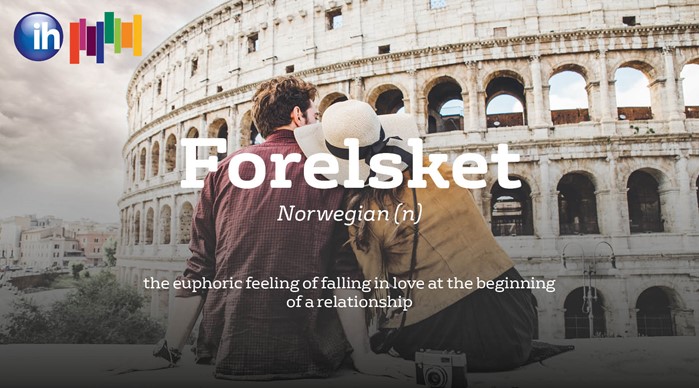
Meaning: the euphoric feeling of falling in love at the beginning of a relationship
Kombinować, Polish (vb)
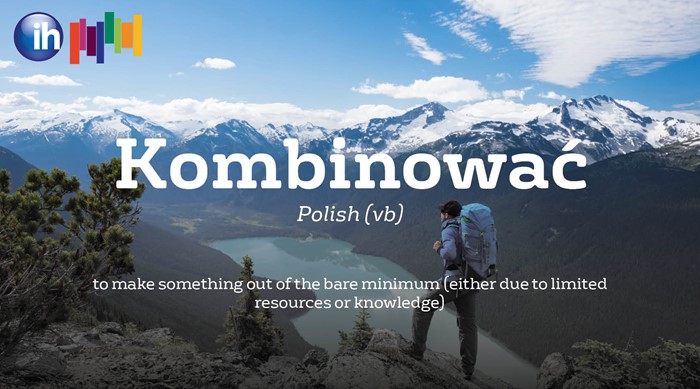
Meaning: to make something out of the bare minimum (either due to limited resources or knowledge)
Cafuné, Portuguese (vb)

Meaning: the act of tenderly running your fingers through someone’s hair
Listopad, Russian (vb)
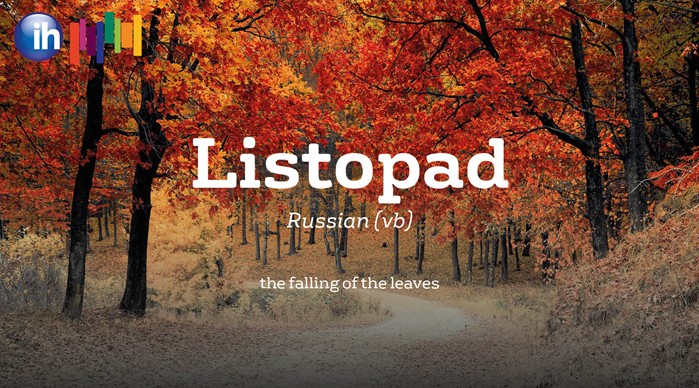
Meaning: the falling of the leaves
Merak, Serbian (n)
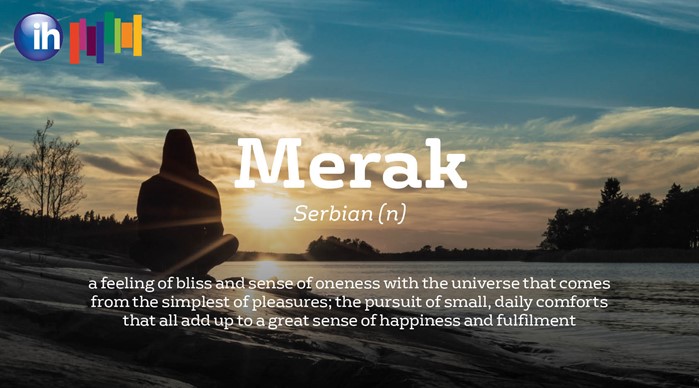
Meaning: a feeling of bliss and sense of oneness with the universe that comes from the simplest of pleasures; the pursuit of small, daily comforts that all add up to a great sense of happiness and fulfilment
Vedriti, Slovenian (vb)
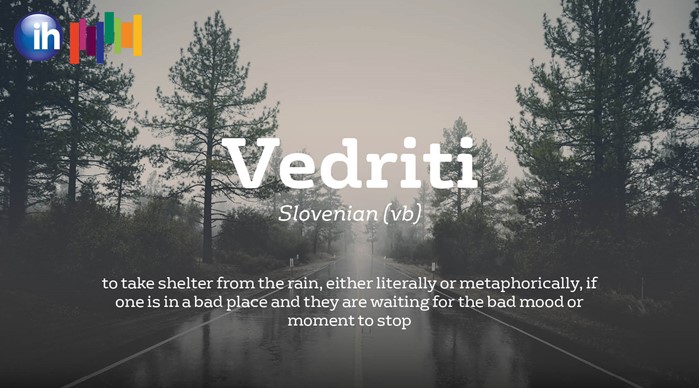
Meaning: to take shelter from the rain, either literally or metaphorically, if one is in a bad place and they are waiting for the bad mood or moment to stop
Duende, Spanish (n)
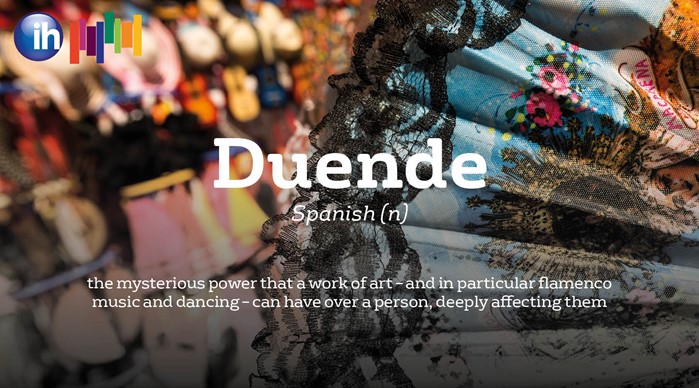
Meaning: the mysterious power that a work of art – and in particular flamenco music and dancing – can have over a person, deeply affecting them
Tidsoptimist, Swedish (n)
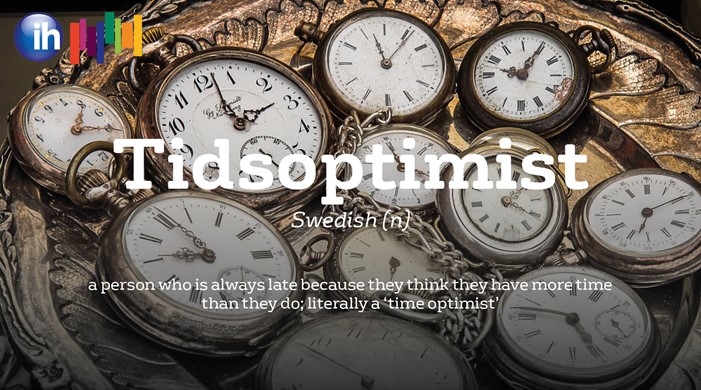
Meaning: a person who is always late because they think they have more time than they do; literally a ‘time optimist’
Gumusservi, Turkish (n)
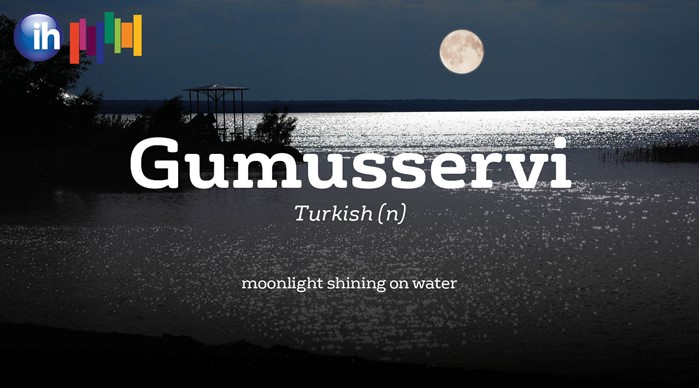
Meaning: moonlight shining on water
.
If you are interested in learning a new language, International House schools offer many different courses for all types of learners across our network of 160 language schools, including English, Spanish, German, Italian, French, Russian, Portuguese, Mandarin, Arabic.
Study Abroad with us in one of 55 different locations worldwide, or check out our extensive list of local Community Schools.





